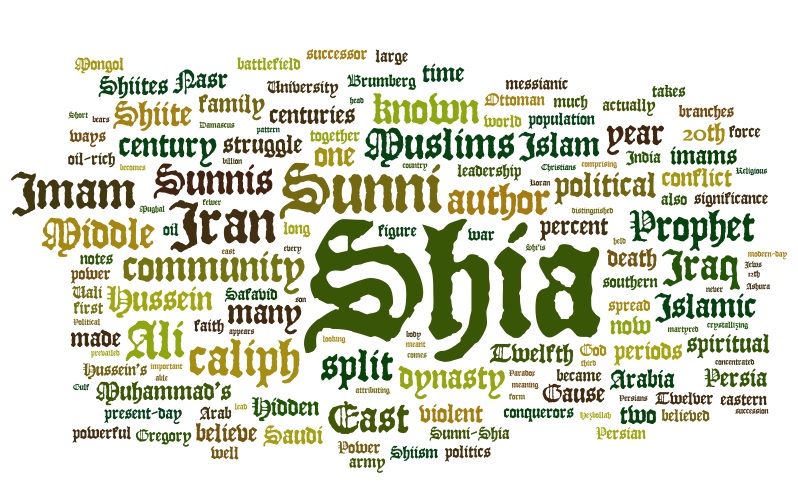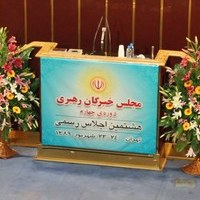![]()
Sat, Aug 13, 2011 | Rubin Reports | By Barry Rubin
The Big Split in the Revolutionary Islamist Movement: Sunni and Shia Blocs Emerge
A development of huge importance is happening in the Middle East, equivalent perhaps to the Sino-Soviet conflict’s effect on the Cold War era: the division of revolutionary Islamists into separate Sunni and Shia camps.
Of course, there have always been tensions and conflicts between Sunni and Shia Muslims, notably bloody fighting in Iraq. Islamists often attempt to portray this as a Western conspiracy but most Muslims know it is a historical reality within Islam.
Iran’s regime tried, with some success, to bridge this gap, becoming patron of Sunni Hamas and majority Sunni Syria. Similarly, the non-Muslim (it pretends otherwise but most Muslims know the truth) Alawite-dominated Syrian regime claims to be Shia and sold itself for a while to Sunnis as a cross-confessional champion of resistance against Israel and the West.
The Sunni-Shia fighting in Iraq did not break this attempt to forge cross-confessional Islamist alliances. But now two other events have done so. The most important is the Syrian revolution. Everyone must take sides. Iran and Hizballah, itself a Shia group, sided with the Syrian regime. Egypt’s increasingly powerful Muslim Brotherhood and the Brotherhood-spawned Hamas are against the Syrian regime, hoping that their fellow Muslim Brotherhood allies will take over in Damascus.
Those who don’t understand this situation think that choosing against the Syrian regime is some proof that the Turkish stealth Islamist government is moderate. No such thing. It is simply taking the Sunni side, also hoping that a congenial Islamist state will emerge as an even closer ally than President Bashar al-Assad has been for them.
The second event was the Egyptian revolution. Finally, the Brotherhood has the hope of establishing a Sunni Muslim Islamist power. Possibilities also exist for a Sunni Islamist regime in Libya and at least a stronger Islamist political presence in Tunisia. Who needs Iran when you have your own Islamist or at least moving-toward-Islamism state?
Make no mistake. Both Islamist blocs hate the West and want to expel its influence from the Middle East and expand their own power by overthrowing additional regimes. Both Islamist blocs hate Israel and want to wipe it off the map. Neither group will be moderate in any way. But with inevitable competition, there will be less cooperation. Once again, the dream of unity ends in quarrels. There are now zero caliphates. In future, there are more likely to be two than just one.
How will this competition manifest itself?
Egypt: Since there is no Shia option there, Iran will try to get along with Egypt as a state, whether it is more Islamic and anti-American or becomes dominated by the Muslim Brotherhood. But the Brotherhood will see Egypt — just as the Arab nationalists once did — as the rightful leader of the Arabic-speaking world. Better Egypt-Iran relations are certain; an Egypt-Iran alliance is unlikely.
Palestinians: Competition over being the patron of Hamas. Egypt and the Brotherhood will win that one. The Palestinian Authority, lacking any reliable Arab ally — since the Saudis are still angry about Palestinian support for Saddam Hussein’s aggression back in 1990 — will be weakened in its competition with Hamas. The PA’s response? Staying intransigent so it cannot be outflanked by the Islamists.
Syria: If the regime survives, it will align with the Shia, if it falls, the question is who takes over but it will certainly leave the Iranian bloc. An Islamist Syria would align with Egypt. While antagonistic toward Hizballah — Syria’s Lebanon policy would be very interesting — it would back Hamas completely
Lebanon: Currently, the Shia Islamist group, Hizballah, and other clients of Iran and Syria prevail. Sunni Islamism has been weak in Lebanon. Perhaps the Sunnis would build up Sunni Islamist groups and perhaps even align with the moderate, non-Islamist Sunni forces that oppose Hizballah-Syria hegemony?
Iraq: While being cautious in foreign involvements, the Iraqi government will tend toward the Shia side, knowing well that too much of a tilt could reopen internal conflicts. How’s this for a perfect example of how Middle East politics transcends Western rationality: the Syrian regime has supported massive Sunni Muslim terrorism against Iraq, its government, and the Shia majority. Now, however, the Iraqi government supports the survival of that Syrian regime because it is part of the Shia bloc! Indeed, high level Iraqi officials are publicly suggesting the Syrian revolution is a result of Saudi and Israeli manipulation. And another bizarre Middle East example: Iraq will manage a situation in which its two main allies are the United States and Iran.
Gulf kingdoms: The Saudis already play the game this way, viewing Iran as a Shia threat and protecting the smaller Gulf Arab states (notably Bahrain) against Shia reform or revolutionary movements. The Saudis already take an anti-Syria stance and oppose Syria-Hizballah-Iran (Shia) hegemony in Lebanon. They are also taking Jordan under their umbrella. These countries will not join an Islamist bloc but will view the Shia as the main threat.
What does this mean for the West and Israel? Given both Islamist blocs’ hostility, there’s no possibility of working with one against the other. U.S. policymakers might make that error, however, given their soft line on the supposedly moderate Brotherhood. That’s a danger. What U.S. policy should do is support all the anti-Islamist forces, but the moving vans will have to pull up to the White House before that happens.
The Islamists will be weaker, subverting each other’s attempts to take over or control various countries and movements. Yet growing sectarianism can also lead to really nasty communal massacres of Muslims by Muslims, as has already happened in Iraq. Syria is the place to watch for that development.
Finally, in competing to show their militancy and effectiveness in backing terrorism, the rate of attacks by both sides could well increase. Trying to prove that one is the “proper” Islamist side representing “authentic” Islam will also likely lead to reckless risk-taking, which a naïve West — assuming everyone wants to be a moderate and acts “rationally” according to their own definition — will be ill-equipped to handle.
A new phase in Middle East history is opening that the West must evaluate and act on. Since, of course, Western governments haven’t even caught up to the last two stages — revolutionary political Islamism is a huge strategic threat and it is best equipped to take advantage of the “Arab Spring” — they are unlikely to comprehend this one either.



 RSS
RSS











The Big Split in the Revolutionary Islamist Movement: Sunni and Shia Blocs Emerge | #Islam #Syria #Egypt #Turkey http://t.co/mYWlE3G
The Big Split in the Revolutionary Islamist Movement: Sunni and Shia Blocs Emerge | #Islam #Syria #Egypt #Turkey http://t.co/mYWlE3G
The Big Split in the Revolutionary Islamist Movement: Sunni and … http://t.co/T73wF0y